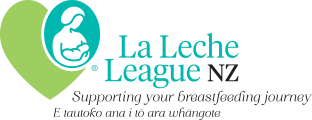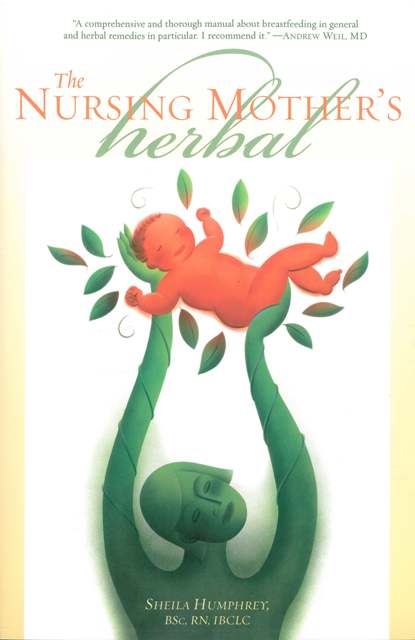Adjusting to a New Sibling, Open to Tandem Feeding
“I am expecting our second child in a few months. I don’t know whether my two-year old will still be breastfeeding – he has shown less interest in breastfeeding as my pregnancy has progressed. I am open to tandem feeding; however, I want to be prepared for our new arrival either way. What can I do to help my two year old adjust to having a new sibling, whether he’s still breastfeeding or not?”
Responses
Jessica Parsons, Central Auckland – My son was still a very keen feeder at about two when I became pregnant the second time. As with you, he was less interested both because of the reduced milk supply and my saying “Ouch, mummy all done!” But he still wanted to feed when he could.
For tandem feeding: learn some boundaries together with your first child well before the birth. We used countdowns during breastfeeding – “1 minute! 10, 9, 8…” (This helps with numeracy, as a bonus!) We also agreed to some breastfeeding manners, because older children can develop habits which make feeding less pleasant. That distractible phase is not really a phase and it only gets stronger. I also explained to my son that the milk would be for the new baby first and then he could have his turn.
I also weaned my son onto Daddy! I knew I could not handle night duty for my son and a newborn, so about mid-pregnancy, Daddy handled night-waking and so my son was night weaned. Very late in pregnancy we coached my son to go for his first sleep with only Daddy there. He still fed during the day and in the evening, but not to sleep.
For general sibling information, I highly recommend the book Siblings without Rivalry by Adele Faber and Elaine Mazlish. LLL Group libraries carry this book. It has specific strategies to practise (and avoid), and they’re not all just common sense. Perhaps some of them have worked, since Alex and Nadia get along fairly well and have lots of fun together.
Claire Hargest-Slade, Timaru – I tandem fed my second and third children. It is an interesting experience! I found that I never had an issue with supply because of two babies making the milk. Often the toddler gets stroppy just as you sit to feed the new baby. I found a great tool was a special toy box that was only opened while I was feeding. Have plenty of food and water on hand for both you and the big kid. Keep the doors closed so the toddler doesn’t disappear into the bathroom cabinet to tip $60 worth of makeup down the loo… or worse! Reading while breastfeeding involves the big baby and allows for closeness.
When the small baby is asleep, this is the time to reassure your big baby that she hasn’t been replaced – give all your attention, lots of fun cuddles, and mummy’s milk if that’s still on tap for the toddler. All children experience sibling rivalry. It’s normal and to be expected. Charlotte and Jemima are still great rivals; maybe that’s just their place in the family. Charlotte always feels sorry when she hears a new baby is on the way to “ruin the older one’s life!” A friend even suggested a homeopathic remedy to help with grief, which is worth a thought. It certainly is a big adjustment, but think of the benefits Charlotte!?
Lastly love the mother. Mothers are not bottomless pits of love and devotion. Call on dads, grandparents, friends, DVDs, new toys, to help support the big baby to realize that their life isn’t completely over when the new baby hits the ground. Caring for yourself well, with lots of nutritious food, rest, water and emotional support will help you be the best mum you can be to two babies.
Contact an LLL Leader or peer counsellor to talk over how they coped when number two, three, or more arrived. A problem shared is a problem halved. Good luck!
Cecil Tamang, Port Chalmers – I hadn’t intended to tandem feed, but my three-year-old daughter wasn’t ready to give up breastfeeding when I was pregnant with my next child. Breastfeeding did become less comfortable, and I night-weaned early in the pregnancy. By the end of pregnancy my breasts were making only small amounts of colostrum, but my daughter didn’t mind, and would breastfeed off to sleep for her day nap and have one feed first thing in the morning.
When the baby arrived, it was actually really rewarding tandem feeding. I had had lots of problems with mastitis and abscesses in my first lactation, so having a big robust breastfeeder was reassuring for me and I could call on her to help me with overfull breasts. I remember she grew enormous cheeks virtually overnight after her brother was born! As for my newborn, he benefited by having my milk supply fully there about 14 hours after the birth! There was certainly something special about feeding them both simultaneously, and I’m sure it supported my daughter’s transition from only child to sibling.
It took us a while to find a comfortable way to feed both children lying down, but eventually I managed by lying on my side, propping my newborn on a pillow with him feeding off my top breast, with my daughter curled in around him to reach my bottom breast. That way we all managed to fall asleep together for a long nap in the afternoon- a luxury I enjoyed (and depended on for survival) for the first six months.
After tandem feeding for six months, and in a trough of low emotional and physical energy, I felt that I needed to wean my daughter. She accepted gracefully, though she would likely still be feeding if it had continued to work for me. Overall, I found tandem feeding a very successful experience for all of us, and though I hadn’t initially set out to try, would certainly do it again, if only for the synchronised sleeping!
Stephanie Ross, Te Awamutu – We were not long ago faced with a similar dilemma. My girls, Eden and Heidi, are now four and 29 months. I was pregnant and I experienced similar challenges with a noticeable drop in supply, pain and incredible discomfort before, during and after feeding. I suffer from Reynaud’s, so the pain combined with the hormones of pregnancy was naturally making things rather difficult.
Around Christmas time last year we had family and friends staying for nearly a two week period when our farm workers were on holiday. Therefore I took advantage of other adults to mind Heidi, and I helped out in the dairy, at both morning and night milkings. Around this time is when feedings became like climbing Tongariro with one jandal, no wet weather gear and a 20kg pack. We hung in there until the beginning of February this year…trying to get by with the minimum every day, to keep Heidi’s sucking reflex alive. Baby arrived in April after a beautiful home birth, but Heidi had already forgotten the art of sucking.
I have experienced periods of sadness and a huge sense of loss. One day I was driving home from the hairdressers after having a special feel good session and I had tears streaming down my cheeks. I felt like I was losing my baby and there was nothing I could do to stop it. I was not ready to stop breastfeeding Heidi – even though, at the time, the pain was unbearable – and she was not ready to stop either. I don’t think she weaned by choice and I feel as though the new baby took some time away from her. I don’t think I will ever forgive myself!
When thinking about what is right for you try to envision what you would like to see when your new baby arrives and devise a plan that will help you get there. Share your plan with those around you who support you in your parenting and enlist their encouragement. Looking back I should have rested more and focused on my supply (no milking cows) and spent more time skin to skin with Heidi to achieve the closeness she craves. I could have used breast warmers 24 hours a day to help my comfort level.
She still has “milkies” in her own way and drinks EBM from a cup. Instead we now read stories and I stroke her face while in the traditional feeding position to achieve the special closeness of breastfeeding.

